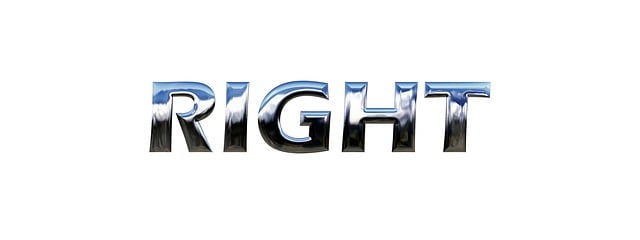Understanding your unique business needs, risks, and vulnerabilities is essential for selecting suitable business insurance. This involves assessing day-to-day operations, long-term goals, potential scenarios (accidents, disasters, data breaches), and industry-specific hazards. By prioritizing what matters most to your business's survival and growth, you can balance these needs with available options to ensure adequate coverage without over-insurance or unnecessary expenses. Key types of business insurance include general liability, professional liability, property, business interruption, and workers' compensation, each tailored to specific risks. Meticulously compare quotes from multiple insurers, scrutinizing coverage limits, deductibles, exclusions, and cost, while ensuring policies meet your specific business needs.
In today’s competitive business landscape, securing the right insurance is more crucial than ever. This comprehensive guide offers professional advice on navigating the complex world of business insurance. We break down essential aspects like understanding your unique business needs and risks, exploring various coverage types, and assessing liability protections. From property insurance to employee-related policies and business interruption coverage, this article equips you with knowledge to make informed decisions. Learn how to compare quotes effectively, ensuring optimal protection for your bottom line. Discover the key steps to choosing the ideal business insurance tailored to your specific requirements.
Understanding Your Business Needs and Risks

Understanding your business needs and risks is a crucial step in navigating how to choose the right business insurance. Every company, regardless of size or industry, faces unique challenges and potential hazards. Identifying these factors allows for tailored coverage that addresses specific vulnerabilities. Assess your operations, from day-to-day activities to long-term goals, and consider possible scenarios—accidents, natural disasters, legal issues, data breaches, etc.—that could disrupt or damage your business. This process enables you to make informed decisions about which insurance policies are essential for risk management and financial protection.
When determining the appropriate coverage, prioritize what matters most to your business’s survival and growth. For instance, if intellectual property is a cornerstone of your success, consider comprehensive legal liability insurance that shields against copyright infringements or trade secret thefts. Similarly, businesses heavily reliant on digital infrastructure should look into cyber insurance for data protection and breach response services. How to choose the right business insurance involves balancing these needs with available options, ensuring you’re adequately protected while avoiding over-insurance or unnecessary expenses.
Types of Business Insurance Coverage

Choosing the right business insurance is a crucial step in protecting your investment and ensuring continuity. The first step is understanding the various types available, each catering to specific risks. General liability insurance is essential for any business, covering claims of bodily injury or property damage on your premises. This includes accidents involving customers, employees, or third parties. Professional liability insurance, also known as errors and omissions coverage, protects against claims arising from professional negligence, such as faulty advice or incomplete services.
Property insurance safeguards your physical assets, including buildings, inventory, and equipment, from perils like fire, theft, or natural disasters. Business interruption insurance provides financial support during unexpected events that halt operations, helping you cover ongoing expenses until normal activities resume. Additionally, workers’ compensation insurance is mandatory in many regions, offering medical benefits and wage replacement to employees injured on the job. Tailoring your coverage to these specific needs will ensure you’re adequately protected as a business owner.
Assessing Liability Risks

Assessing liability risks is a critical step in how to choose the right business insurance. Every business faces unique potential hazards, and understanding these risks is essential for selecting adequate coverage. Begin by evaluating your operations, products, or services, and consider any legal responsibilities that could arise. For instance, if your business manufactures goods, you might face product liability claims due to defects or injuries caused by your products. Similarly, if you offer professional services, you could be held liable for negligence or malpractice.
Next, examine your workplace environment and policies. Are there potential hazards like slips, trips, or falls? Do you have measures in place to protect employees and customers? Your risk assessment should also consider industry regulations and legal precedents specific to your sector. This process will help identify areas where insurance can provide financial protection against significant liabilities, ensuring your business is adequately protected.
Property Insurance 101

Selecting the appropriate property insurance is a critical step in safeguarding your business against potential risks and financial losses. It’s essential to understand that no two businesses are alike, and their insurance needs may vary significantly based on factors like location, industry, and assets. Therefore, when choosing property insurance, it’s crucial to assess the specific risks associated with your business premises and operations.
Start by evaluating the type of property you own—whether a physical office space or retail store—and consider its value and contents. Determine if your business owns valuable equipment, inventory, or intellectual property that requires specialized coverage. Additionally, be mindful of potential hazards in your area, such as natural disasters or high crime rates, which can impact your insurance requirements. By taking these steps, you’ll be better equipped to choose the right property insurance policy that aligns with your business’s unique needs and offers adequate protection.
Understanding Employee-Related Coverages

Choosing the right business insurance is a critical step in protecting your company from financial risks associated with employee-related issues. Employee-related coverages are essential components that safeguard against potential liabilities stemming from workplace accidents, injuries, or even legal claims of discrimination or harassment. These policies provide a safety net for businesses by covering medical expenses, legal fees, and compensation for lost wages or disabilities.
When navigating the process of selecting business insurance, it’s vital to assess your specific industry requirements and potential risks. Understanding the scope of employee-related coverages offered by different insurers is key. Look for policies that offer comprehensive protection, including workers’ compensation, general liability, and employment practices liability insurance. Each of these plays a unique role in shielding your business from financial exposure related to employees.
Business Interruption Insurance: Protecting Your Bottom Line

Business Interruption Insurance is a crucial component in any strategic business insurance plan, offering vital protection against unforeseen events that could cripple operations and hit your bottom line hard. This type of coverage is designed to compensate for lost revenue and extra expenses incurred during temporary interruptions caused by events like natural disasters, cyberattacks, or civil unrest. By ensuring you have the right Business Interruption Insurance in place, you’re taking a proactive step to safeguard not just your business assets but also your financial stability and recovery potential.
When considering How to Choose the Right Business Insurance, it’s essential to assess the risks specific to your industry and location. For example, businesses operating in areas prone to natural disasters may require higher coverage limits for business interruption. Similarly, companies heavily reliant on digital infrastructure should consider policies that address cyber-related interruptions. Understanding these needs will help you tailor your insurance plan, ensuring you receive adequate protection while avoiding unnecessary costs.
Comparing Quotes and Policy Terms

When choosing the right business insurance, comparing quotes and policy terms is a crucial step. Start by collecting multiple quotes from different insurers to gain a comprehensive overview of the market. Each quote should include details on coverage limits, deductibles, exclusions, and the overall cost. Don’t be swayed solely by price; focus on understanding the fine print to ensure the policy aligns with your business needs.
Examine policy terms carefully, looking for any discrepancies or limitations that could impact your coverage. Consider the type of risks specific to your industry and ensure the insurance policy addresses them adequately. Remember, the goal is to find a balance between comprehensive protection and affordable premiums. By meticulously comparing quotes and policy terms, you can make an informed decision that protects your business interests.
